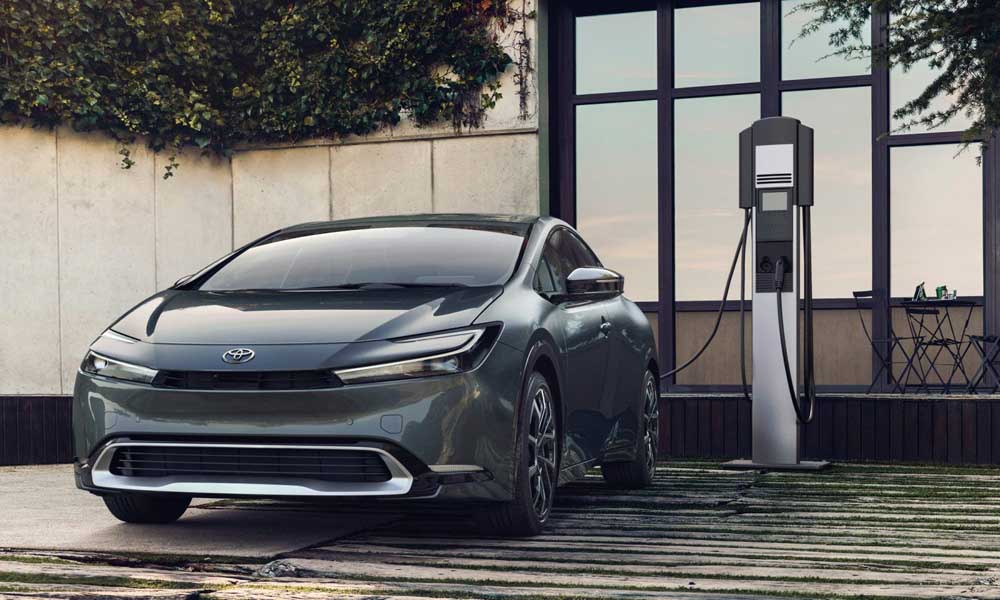COLUMN: Oregon is getting more EV chargers in 2024
Published 1:16 pm Tuesday, January 30, 2024

- There’s a good chance you know someone who owns an electric truck, SUV or car, like this 2024 Toyota Prius Prime. About 1,000 new EVs are registered in Oregon each month. In the second quarter of 2023, 14% of new cars sold in Oregon were electric, according to the latest numbers from September 2023.
Electric vehicles are a common sight in Oregon these days. Around 80,000 registered EVs can be found in every corner of the state.
Trending
There’s a good chance you know someone who owns an electric car, truck or SUV. About 1,000 new EVs are registered in Oregon each month. In the second quarter of 2023, 14% of new vehicles sold in Oregon were electric, according to the latest numbers from September 2023. That puts our state fourth in the nation for new EV sales.
Drivers in Oregon are choosing EVs at a fast rate, and that’s great news for our climate. EVs don’t emit harmful greenhouse gases, which helps keep our air cleaner and our communities healthier. It also helps us reach our long-term goals to reduce the impact transportation has on our environment. This quick pace of EV adoption is a central reason we’re on track to reduce carbon emissions from transportation by 60% before 2050.
ODOT’s part in Oregon’s EV future is on the infrastructure side. We oversee the programs that fund Oregon’s public EV charging infrastructure. EV chargers funded by public dollars help fill in gaps in the network, like in rural areas, underserved communities, and multifamily homes.
Trending
On average, Oregon’s public EV charging infrastructure has grown 30% per year since 2018. We count growth per “charging port” because one EV charging station can have multiple ports serving multiple vehicles. There are about 2,800 public EV charging ports in Oregon today.
Growing and improving public EV charging infrastructure is essential — not only for fueling EVs but for boosting public confidence that an EV could be their next vehicle.
We expect 2024 to be a big year for public EV charging infrastructure in Oregon, thanks in part to steady progress in state and federal funding programs.
Over the next five years, a new federal program aims to install public EV fast charging stations every 50 miles along major roads and interstates in all 50 states. We’re partnering with private companies to install and maintain the charging stations.
In 2024, we expect EV charging station projects to begin along Interstate 205, Highway 97, and Interstate 5 south of Eugene. Those stations will be the first step in a backbone network of new fast charging stations along several major roads in Oregon, like Interstate 84, Highway 101, and Highway 20.
More EVs on our roads means we need more equitable and easy-to-access public charging options in our communities — especially for people who live in places where it’s harder to charge EVs, like apartment complexes.
Our new Community Charging Rebates Program, launched last year, reimburses up to 75% of project costs for “Level 2” EV charging ports at multifamily homes and public parking areas.
We wrapped the first round of program funding in October 2023. We awarded $1.75 million to 94 projects in 23 counties throughout Oregon. Of those 94 projects, 79 were in underserved or rural communities.
By the time all the projects are finished in 2024, we estimate there will be 370 new public Level 2 charging ports, a 19% increase in total Level 2 charging ports in the state.
We plan to hold another round of funding in March.
Larger vehicles like delivery trucks, buses, and semi-trucks are also going electric or turning to other non-carbon-based fuels. Creating charging infrastructure for larger vehicles can be challenging and expensive. But a new federal grant program to charge and refuel larger vehicles promises to help solve that problem.
In June, we filed a joint application to the program with California and Washington. Our application proposes a network of charging and refueling stations along I-5 through all three states. We also submitted a second, solo application for similar charging and refueling stations along I-84, a critical trucking route.
The next few years will be critical for EVs and public EV charging infrastructure in Oregon. As more people choose an EV for their next vehicle, we’ll put federal dollars to good use and continue to invest in infrastructure that is equitable, affordable, reliable, and fits the needs of the growing EV driver population.







